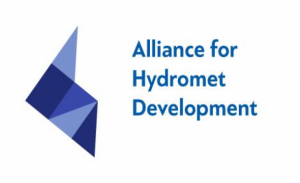UN report advocates for weather investments to save lives

An estimated 23,000 lives per year could be saved and up to $2bn in economic losses averted by improving weather forecasts, early warning systems, and climate information in low- and middle-income countries, according to a new report issued by the Alliance for Hydromet Development.
According to the UN, Hydromet provides reliable and accurate weather and climate services such as early warning systems that create benefits worth at least 10 times their costs and are vital to building resilience to extreme weather.
Speaking at a virtual launch, Secretary-General of the UN, António Guterres, said, “The first Hydromet Gap Report tells us how far we have to go to ensure all people have access to accurate, timely, weather and climate information.
“It presents the challenges of the complex global and local undertaking required for effective weather and climate forecast services and proposes priority solutions to scale up hydromet development.”
Guterres called for a breakthrough on adaptation and resilience in 2021, with significant increases in the volume and predictability of adaptation finance.
He said it was vital to ensure all people, especially the most vulnerable, could adapt and be more resilient to the consequences of inevitable future weather and climate events.
Secretary-General of the World Meteorological Organisation, Prof. Petteri Taalas, said, “We are far off track from reducing global greenhouse gas emissions to avert the worst impacts of climate change and limit temperature rise to within 1.5 °C in line with the Paris Agreement.
“Science-based, data-driven weather and climate services are the foundation for effective adaptation measures.
“While the contribution of developing countries to greenhouse gas emissions is limited, the impacts of disasters from climate-related weather events are three times higher than in high-income countries.”
Reacting to the report, AfDB President, Dr Akinwumi Adesina, said, “The Alliance partnership is important to the bank and to Africa.
“It offers a platform to strengthen resilient development and climate adaptation through improved ground-based observing systems, leading to better weather forecasts of extreme events and climate prediction services.”
The Alliance for Hydromet Development was launched at the U.N. Climate Change Conference, COP25, in Madrid.
The members collectively committed to unite and scale up efforts to close the capacity gap on high-quality weather, climate, hydrological, and related environmental services as the foundation for resilient and sustainable development.
The UN notes that many developing countries, including several in Africa, do not have the capacity to generate basic weather and climate observation data.
